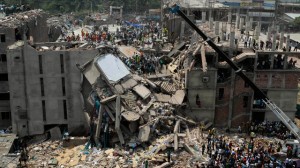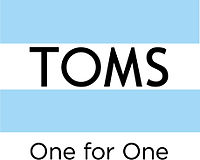 Last May, we witnessed the horrific collapse of a Bangladesh garment factory that took the lives of thousands of innocent workers. With illegally added floors, poor construction, heavy machinery, and swampy land as a foundation, Rana Plaza was a disaster waiting to happen.
Last May, we witnessed the horrific collapse of a Bangladesh garment factory that took the lives of thousands of innocent workers. With illegally added floors, poor construction, heavy machinery, and swampy land as a foundation, Rana Plaza was a disaster waiting to happen.
Immediately following the collapse, worldwide criticism took off. How could anyone be expected to work in such a dangerous environment while making a mere $38 a month? The shock and disgust associated with this incident quickly evolved into a wave of guilt, as people looked at the tags of the clothes on their back, realizing that they too were contributing to this global problem.
After the Bangladesh incident, the unethical procedures many companies were accustomed to became such common knowledge, that they had no choice but to improve these procedures. Consumers began to demand knowledge about where their clothes were coming from. As a result, ethics have become a marketing tool for many companies.

TOMS, for example, is not only dedicated to addressing the problems of human trafficking and slavery, but has also guaranteed that for each pair of shoes purchased, a pair of shoes is given to a child in need. All of a sudden, paying $60 for a pair of canvas shoes doesn’t seem so bad.
In addition to company’s individual strategies, this past July, over 15 major companies, including Target, Walmart, and Macy’s, signed onto The Alliance for Bangladash Worker Safety. Many people cried it was far from a solution, but nevertheless it was a step towards one.
Sources:
http://www.cbc.ca/news/world/story/2013/05/23/bangladesh-building-collapse-report.html
Thousands mourn 1,127 people killed in Bangladesh factory collapse
http://www.toms.com/media/files/TOMS_TraffickingSlaveryEfforts.pdf
